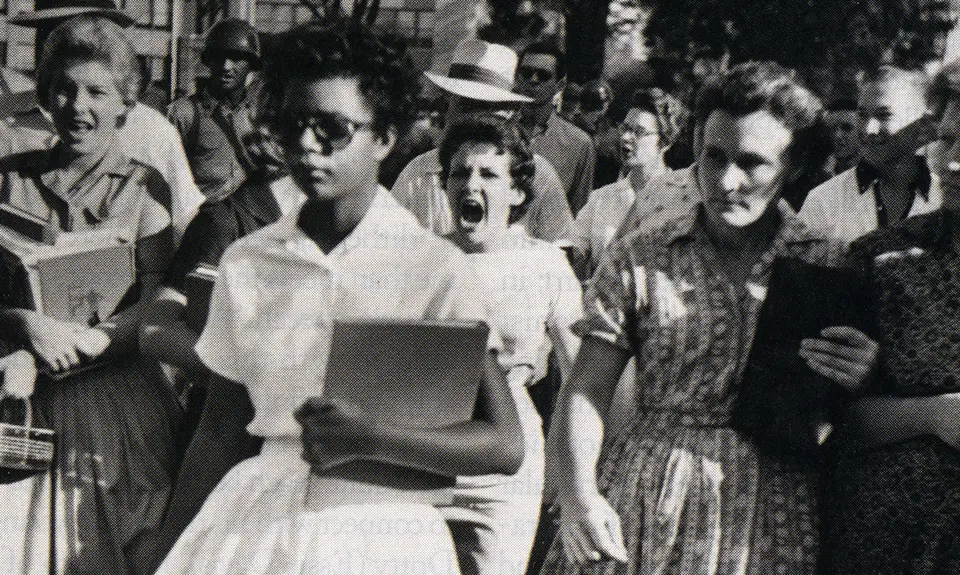May 17, 1954 ranks among the most important days in the history of the United States: When the Supreme Court issued its unanimous decision in Brown v. Board of Education 65 years ago, the essential humanity of African Americans was finally recognized as fundamental to the fabric of our society. The legal overturning of “separate but equal” finally gave legitimacy to a federal judiciary that had previously sanctioned the political, social, and economic oppression of people based on their race.
The backlash was intense and violent—and unmistakably overt. But fair-minded constitutionalists on the Supreme Court and throughout the federal judiciary risked their lives to bring the principles of the case to life. Over time, a national consensus finally emerged that Brown was correctly decided. In a nation still rife with racial divisions and conflict, everyone could at least agree on that.
Nominees for the court that issued Brown have long expressed their agreement with the decision without generating headlines. But since President Trump took office, judicial nominees’ support for Brown has gone the way of so many other democratic norms.
Perhaps the first to refuse to acknowledge the correctness of the case was Wendy Vitter, a Louisiana district court nominee scheduled for a confirmation vote this week. Since then, it has become commonplace.
Their excuse is that judicial ethics prohibit them from suggesting how they might rule in a particular case that might come before them. But do they really believe it likely—or even possible—that the principle of Brown is going to be relitigated? Revisiting separate but equal has not been a subject of any serious debate, at least in public.
Unfortunately, many of the narrow-minded elite lawyers that Trump has nominated have poor records on issues relating to racial equity.
Mark Norris, Confirmed Tennessee district court judge
- As a state senator, Norris pushed through a bill that made it much harder for cities to remove monuments honoring the Confederacy or the founder of the KKK. He also led an effort to prevent any Syrian refugees from being resettled in Tennessee.
Kyle Duncan, Confirmed Fifth Circuit judge
- Duncan defended North Carolina’s omnibus voter-suppression law, whose provisions were found by the Fourth Circuit found to “target African Americans with almost surgical precision.” He also defended a restrictive voter ID law in Texas that a judge concluded had been adopted with the intent to discriminate.
Kenneth Lee, Pending Ninth Circuit nominee
- Lee wrote that Congress lacks the constitutional authority to address states’ racially discriminatory prohibitions on voting against formerly incarcerated people because he believes the prohibitions are not racist.
Michael Truncale, Pending Texas district court nominee
- Truncale called President Obama “an un-American imposter.” He also wrote that we need in-person voter ID laws—which disproportionately disenfranchise people of color—because “voter fraud makes a mockery of our elections,” but admitted under oath that he had no research or personal experience to back up that claim.
Andrew Oldham, Confirmed Fifth Circuit judge, and J. Campbell Barker, Confirmed Texas district court judge
- Oldham and Barker were part of the Texas legal team that successfully maneuvered to get their lawsuit challenging DAPA before a judge who had made inappropriate and political statements about immigration from the bench.
Eric Murphy, Confirmed Sixth Circuit judge
- Murphy defended Ohio’s disenfranchising voter purge system, which disproportionately harms people of color, and even helped persuade the Justice Department to reverse its position in that case from opposing the law to supporting it.
Many also have deeply disturbing records relating to the criminal justice system, which sweeps up people of color in numbers far beyond their proportion of the population.
Allen Winsor, Pending Florida district court nominee
- Winsor supported a lethal injection regime that was likened to being burned alive.
Stephanos Bibas, Confirmed Third Circuit judge
- Bibas wrote an unpublished article recommending that we sentence most convicted defendants to electric shocks and Tasers rather than prison.
Michael Brennan, Confirmed as a Seventh Circuit judge
- Brennan refused to acknowledge to the Judiciary Committee that there is at least implicit racial bias in our nation’s criminal justice system. He even seemed unfamiliar with studies showing the terrible racial disparities throughout our criminal justice system, even though he had served as a state judge for many years.
Daniel Collins, Pending Ninth Circuit nominee
- Collins sharply criticized the Supreme Court’s Miranda decision, which ensures that anyone who is arrested is informed of their legal rights.
Kurt Engelhardt, Confirmed as a Fifth Circuit judge
- Engelhardt dismissed a lawsuit by a Muslim told by a shopping mall guard to remove her hijab or push it away from her face, and instead accepted the mall’s unsupported claim that it always prohibits any face-obscuring garments.
The 65th anniversary of Brown v. Board of Education represents an opportunity to recommit ourselves to the principles it represents, and to a judiciary that reliably applies those principles. That means taking seriously the Senate’s obligation to examine nominees’ records, and taking seriously their refusal to acknowledge that Brown was correctly decided.
